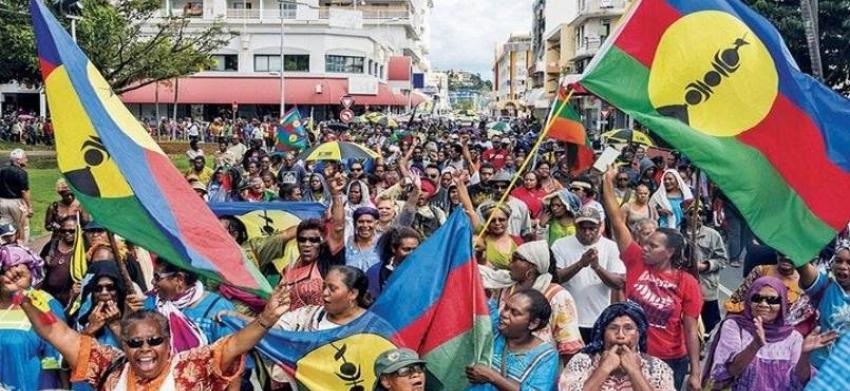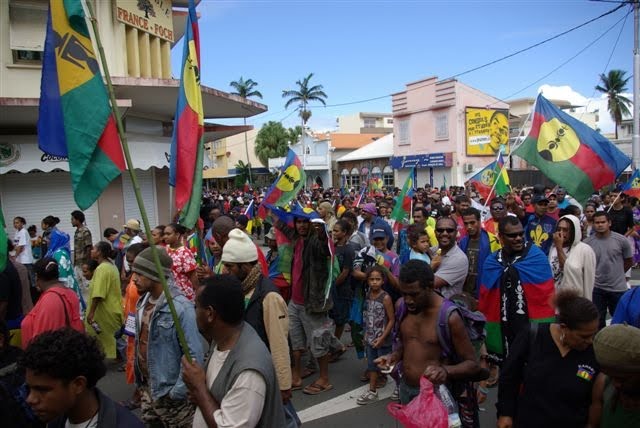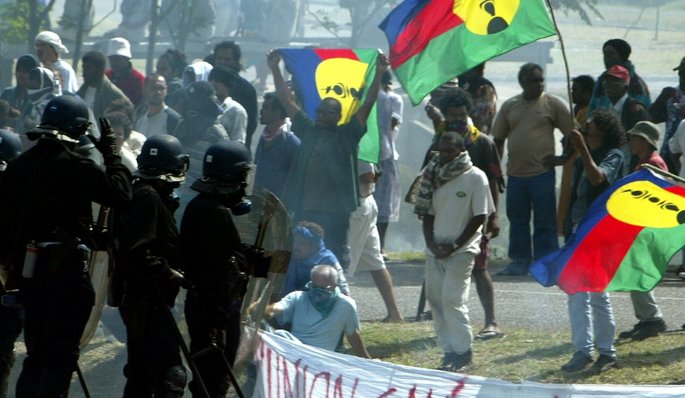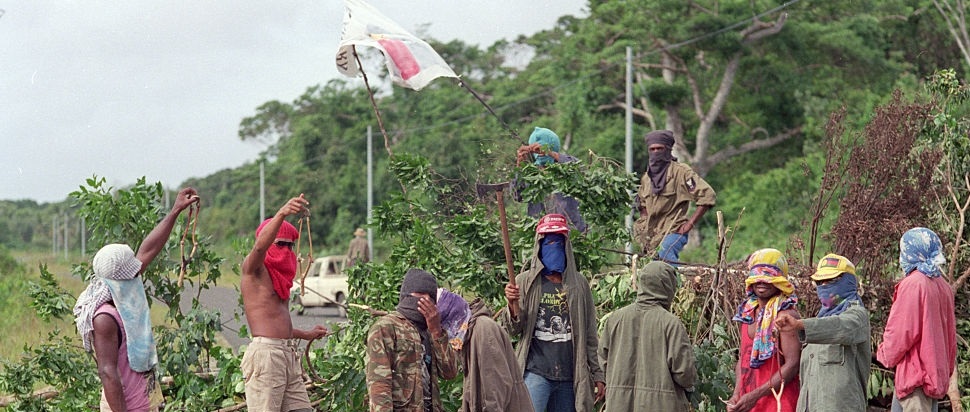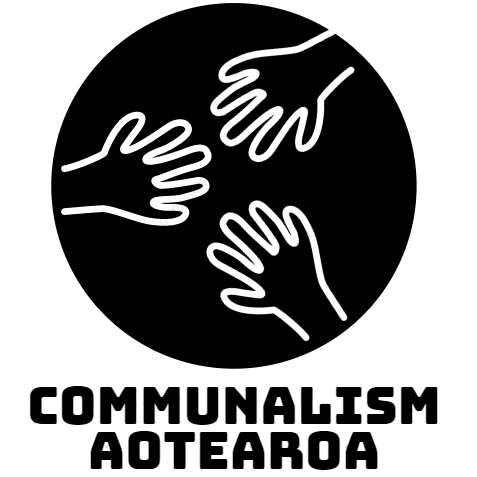This solidarity statement was released by Kia Mau Aotearoa.
As Indigenous peoples of New Zealand and Te Moananui a Kiwa, we watch with grave concern the recent events in Kanaky / New Caledonia.
We have witnessed the Macron government derail the process for decolonization and usurp the Noumea Accords. We wholeheartedly reaffirm and support the inalienable Kanak right to self-determination, enshrined in the Declaration of the Rights of Indigenous Peoples. In particular, we reaffirm the Indigenous Kanak people’s right to self determination and political independence from France.
For over 300 years, Te Moananui a Kiwa has been subjected to European colonialism, the criminality of which is obscured and hidden by Western presumptions of righteousness and legitimacy. This is mirrored by colonial actions in Palestine, as indeed they are wherever colonialism endures. We note with concern that mainstream media continues to frame stands for Indigenous justice as unprovoked violence, erasing the backdrop of violent colonialism upon which such stands take place. Ultimately, justice and peace can only exist in the absence of colonialism, which continues to accelerate and intensify across Te Moananui a Kiwa.
The devastating effects of nuclearism, militarism, extraction and economic globalisation on Indigenous culture and fragile ecosystems in the Pacific are an extension of that colonialism and must be halted. The economic and political destabilisation in Kanaky did not start with the uprising of Kanak people, it started with the illegal annexation of Kanaky soils and waters by France. Violence did not start with the uprising of Kanak people, it started with the colonial crimes against humanity by European invaders, which include enslavement, child theft, land dispossession, and the enduring crime of illegal annexation. In such contexts, an uprising constitutes the inherent right of Kanak peoples to reach for justice, hitherto denied upon their own lands.
The New Zealand government has a moral obligation to support Kanak rights in this space, derived from its historical colonial actions in Kanaky and the broader Moananui a Kiwa region. This complicitness has seen New Zealand prioritise its colonial commonalities with Europe, Britain, Canada, USA, and Australia, over and above its commonalities as Moana nations, and sites of colonial injustice.
We stand in solidarity with our Kanak whānau as Moana peoples, and as Indigenous peoples, in opposing the pervasive imposition of European colonialism upon our worlds, and urge the following:
● Halting the influx of French immigrants which continues to undermine the political social and economic agency of the Kanak people on their own lands
● The deployment of a Pan-Pacific independent mission to monitor the transfer of political power to the Kanak people
● Consultation with all relevant parties to ensure that the decolonization process leads to a valid active self-determination by the Kanak people, and provide for them to define and participate in their own economic social and cultural development
● De-escalation of the militarised French response to Kanak dissent and an end to the state of emergency
● Revocation of Pacific Islands Forum Dialogue Partner status for France, which was initially revoked due to the resumption of nuclear testing on Mururoa in the late 1990s and was only reinstated after halting the tests
We stand ready to further express our solidarity with our Kanak peoples, and to hold our own government to account alongside their colonial allies for the harms of colonialism upon Te Moananui a Kiwa, and upon Kanaky.
For further comment: Tina Ngata tina.m.ngata[at]gmail[dot]com
or Sina Brown-Davis: sinabrowndavis[at]gmail[dot]com
Déclaration de soutien à Kanaky
En tant que peuples autochtones de Nouvelle-Zélande et Te Moananui a Kiwa, nous observons les récents évènements en Kanaky/Nouvelle-Calédonie avec beaucoup d’inquiétude.
Nous sommes témoins du fait que le gouvernement Macron entrave le processus de décolonisation et usurpe l’Accord de Nouméa. Nous réaffirmons et soutenons de tout cœur le droit inaliénable des Kanak à l’auto-détermination, inscrit dans la Déclaration des Nations Unies sur les droits des peuples autochtones. Plus particulièrement, nous réaffirmons le droit du peuple kanak à l’auto-détermination et à l’indépendance politique.
Pendant plus de 300 ans, Te Moananui a Kiwa a été soumis au colonialisme européen, dont la criminalité est cachée et voilée par les présomptions de bien-pensance et légitimité occidentales. Cela se reflète dans les actions coloniales en Palestine, car elles se retrouvent dans tous les contextes ou le colonialisme persiste. C’est avec inquiétude que nous remarquons que les média continuent de présenter la défense pour la justice autochtone comme de la violence non-provoquée, effaçant le violent contexte de colonialisme sur lequel cette défense se base. En définitive, la justice et la paix ne peuvent qu’exister en l’absence du colonialisme, qui cependant continue de s’accélérer et de s’intensifier à travers Te Moananui a Kiwa.
Les effets dévastateurs du nucléaire, du militarisme, de l’extractivisme et de la mondialisation économique sur la culture et les écosystèmes fragiles autochtones dans le Pacifique sont une extension de ce colonialisme qui doit être stoppé. La déstabilisation économique et politique en Kanaky n’a pas commencé avec le soulèvement du peuple kanak, elle a commencé avec l’annexation illégale des terres et eaux kanak par la France. La violence n’a pas commencé avec le soulèvement du peuple kanak, elle a commencé avec les crimes contre l’humanité coloniaux perpétrés par les envahisseurs européens, qui inclus la mise en esclavage, le vol d’enfants, la dépossession des terres et le crime d’annexation illégale qui continue dans la durée. Dans ce contexte, un soulèvement constitue le droit inhérent du peuple Kanak à aboutir à la justice, qui lui est niée sur ses propres terres.
Le gouvernement néo-zélandais a une obligation morale à soutenir les droits kanak dans cet espace, liée à ses actes coloniaux historiques en Kanaky et dans la région Moananui a Kiwa. Cette complicité a vu la Nouvelle-Zélande prioriser les intérêts coloniaux avec l’Europe, la Grande Bretagne, le Canada, les États Unis, et l’Australie, aux dépens des intérêts des nations du Moana, et d’endroits où règne l’injustice coloniale.
Nous sommes en solidarité avec notre whānau kanak en tant que peuples Moana et peuples autochtones, dans le refus de l’imposition omniprésente du colonialisme européen dans nos mondes, et nous exigeons :
• De mettre fin à l’influx d’immigrants français qui continue d’affecter la liberté politique, sociale et économique du peuple kanak sur ses propres terres
• Le déploiement d’une délégation pan-Pacique afin de contôler le transfert de pouvoir politique au peuple kanak
• Une consultation avec toutes les parties prenantes pour assurer que le processus de décolonisation mène à une auto-détermination valide et active du peuple kanak, et lui permette de définir et participer à son propre développement économique, social et culturel
• Le désamorcement de la réponse militarisée de la France à la contestation kanak et la fin de l’état d’urgence
• La révocation du statut de Partenaires du Dialogue Post-Forum de la France au Forum des îles du Pacifique, qui avait été initialement suspendu lors de la reprise des essais nucléaires à Mururoa à la fin des années 1990 et a été réintégré après l’arrêt des tests
Nous nous tenons prêts à démontrer notre solidarité avec notre peuple kanak, et tenir notre propre gouvernement pour responsable ainsi que ses alliés coloniaux pour les préjudices du colonialisme sur Te Moananui a Kiwa, et sur Kanaky.

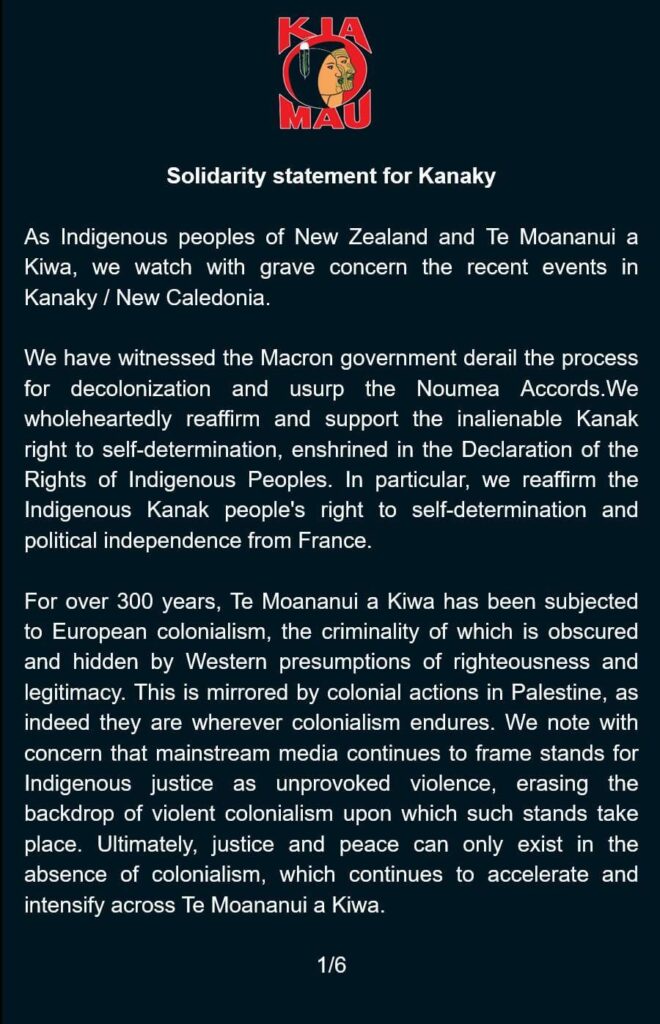
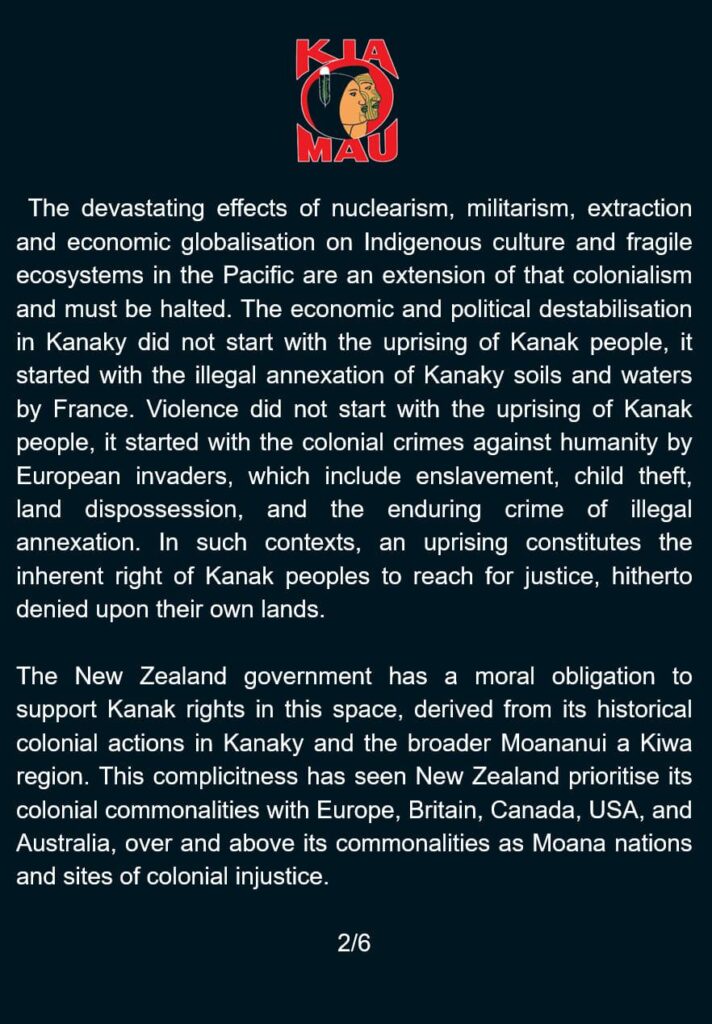
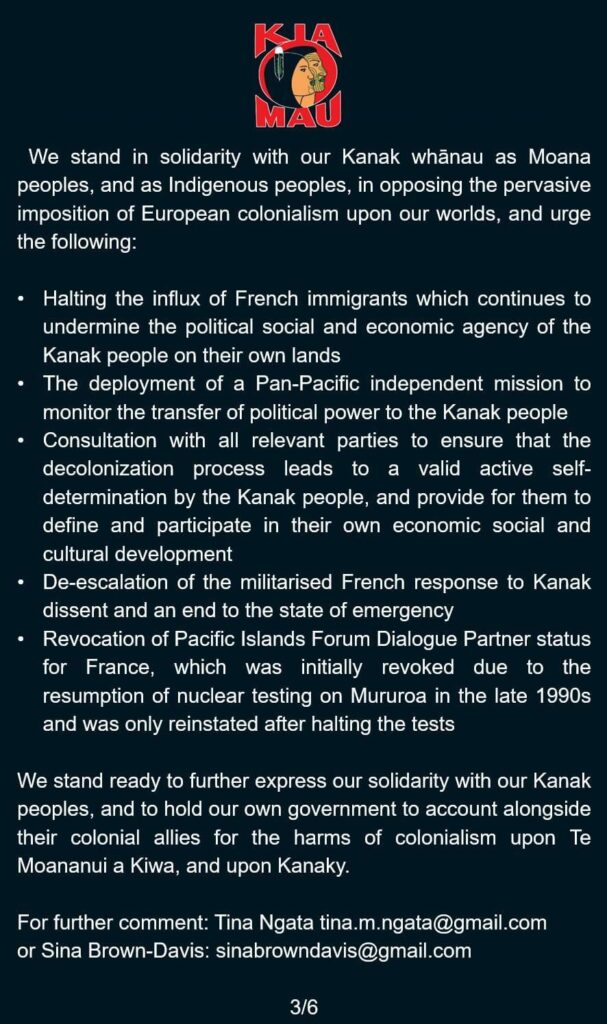
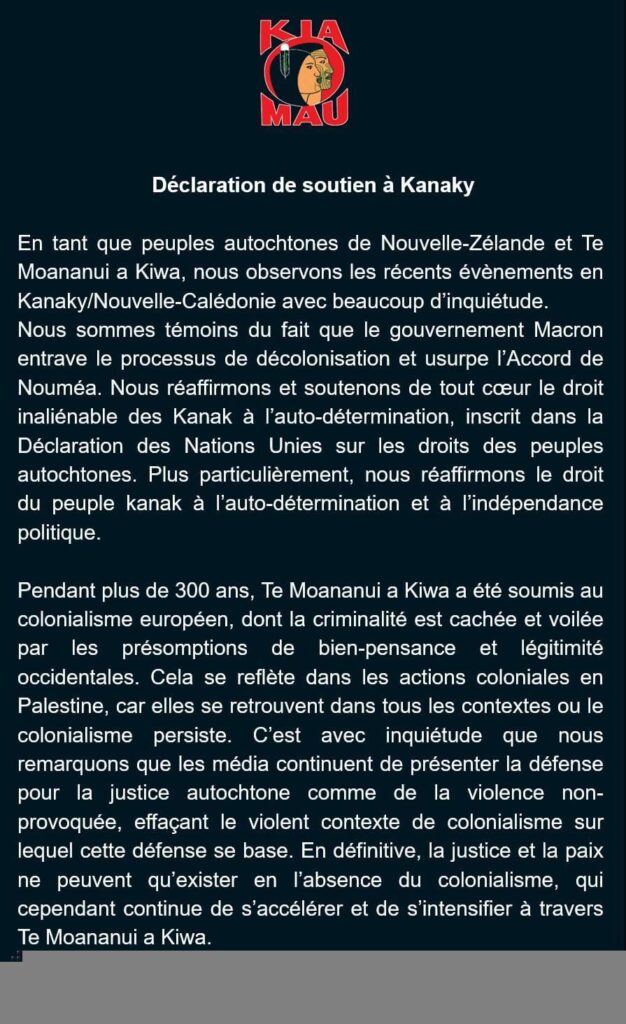
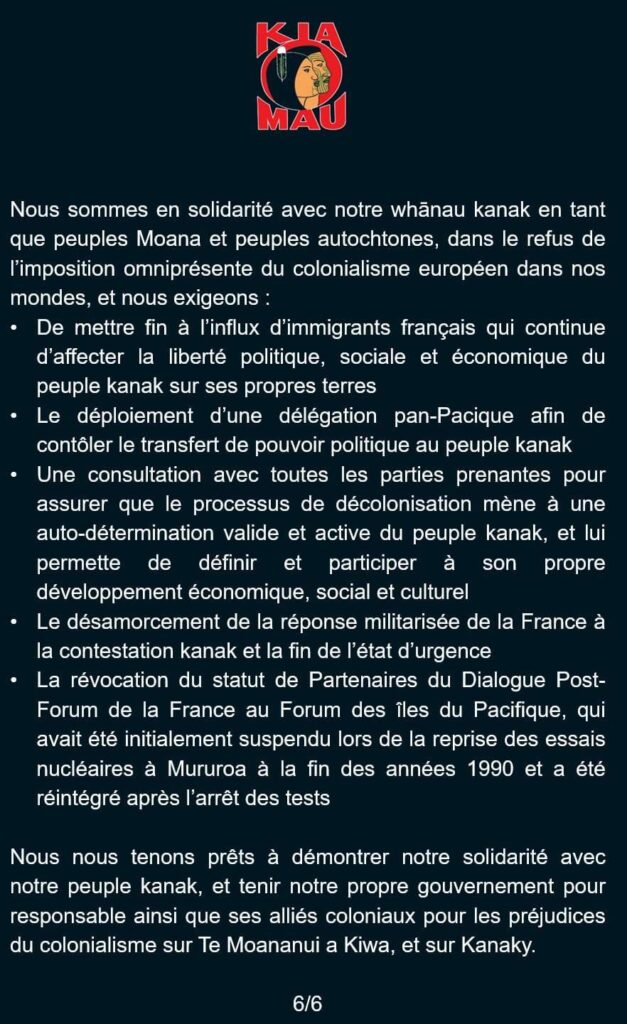
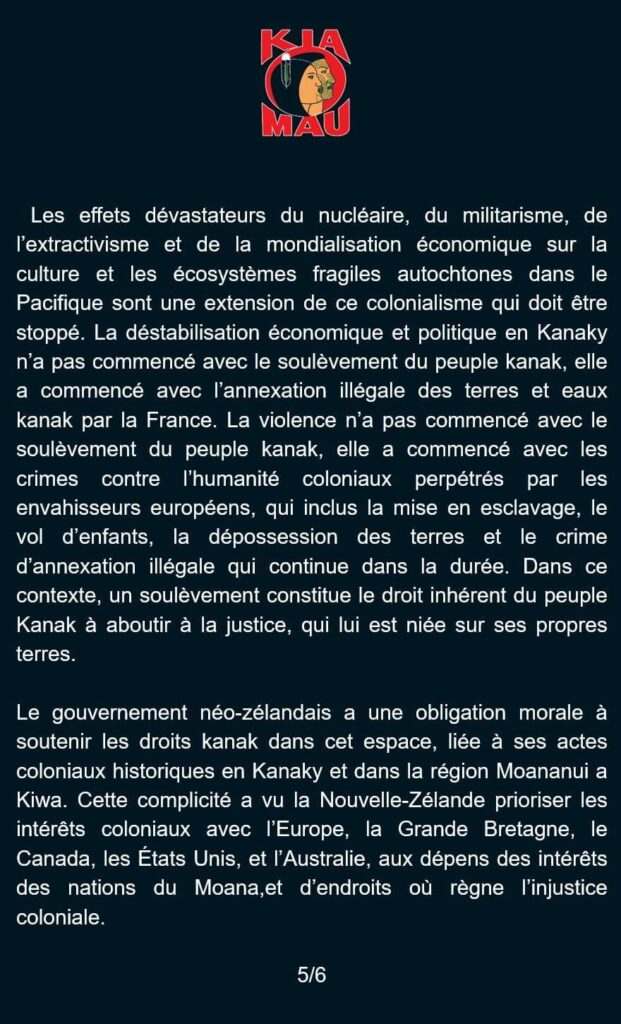
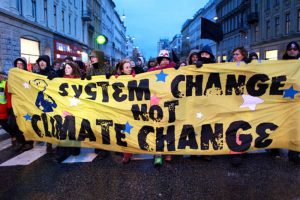 Those of us in the movement for climate justice have for many years advocated for systematic and radical changes to our economy and society to avert the threat of climate chaos. For decades, scientists have warned us about the implications of sea-level rise, droughts and super-storms to the point that we are now finding ourselves in earth’s sixth mass extinction event. While our movement against further fossil fuel extraction, the destruction of forests and the growing economic disparities within society has grown in recent years, we are still largely dealing with governments and corporations who remain part of the problem and are unwilling to shift.
Those of us in the movement for climate justice have for many years advocated for systematic and radical changes to our economy and society to avert the threat of climate chaos. For decades, scientists have warned us about the implications of sea-level rise, droughts and super-storms to the point that we are now finding ourselves in earth’s sixth mass extinction event. While our movement against further fossil fuel extraction, the destruction of forests and the growing economic disparities within society has grown in recent years, we are still largely dealing with governments and corporations who remain part of the problem and are unwilling to shift.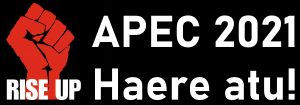
 In March 2019, 50 anarchists from across Aotearoa and even further afield, gathered for the first time in a decade for discussions, strategising and building networks and relationships. Back in April 2009, the Wildcat Anarchist Collective organised a
In March 2019, 50 anarchists from across Aotearoa and even further afield, gathered for the first time in a decade for discussions, strategising and building networks and relationships. Back in April 2009, the Wildcat Anarchist Collective organised a  Our popular introductory seminar Ecology Democracy Utopia starts again next week, meeting Mondays at 10 am PST/1 pm ET April 8 through May 27. Write us to enroll today!
Our popular introductory seminar Ecology Democracy Utopia starts again next week, meeting Mondays at 10 am PST/1 pm ET April 8 through May 27. Write us to enroll today!
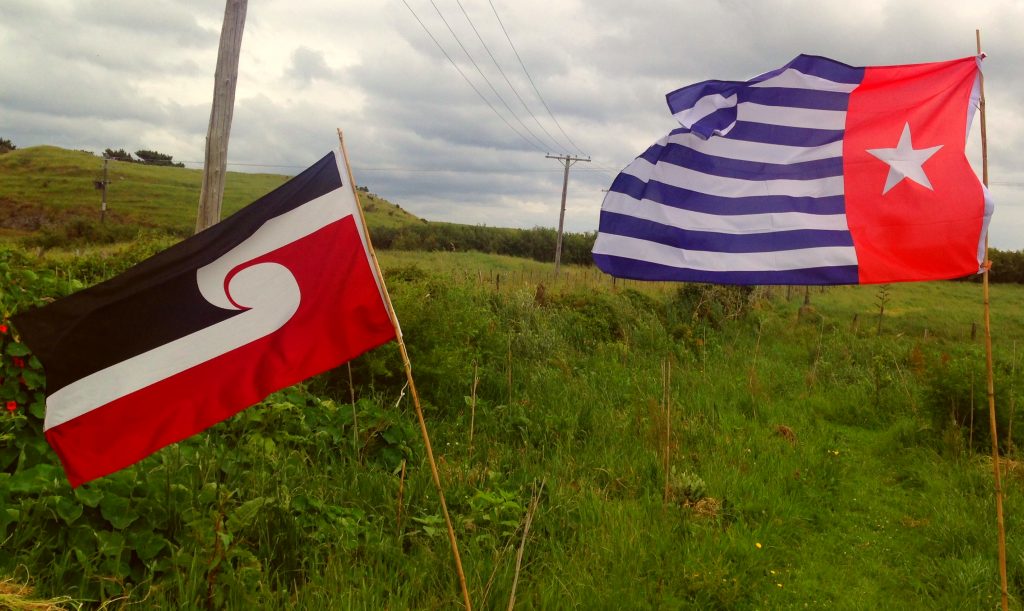
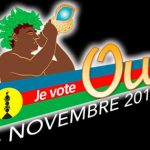 I vote YES – together for Kanaky
I vote YES – together for Kanaky